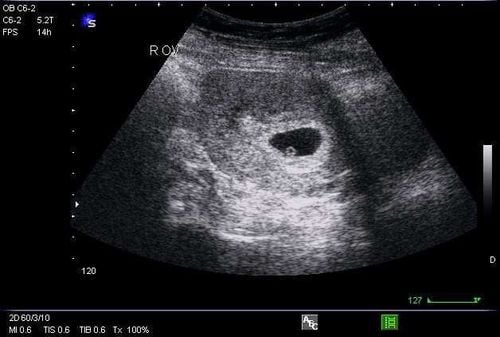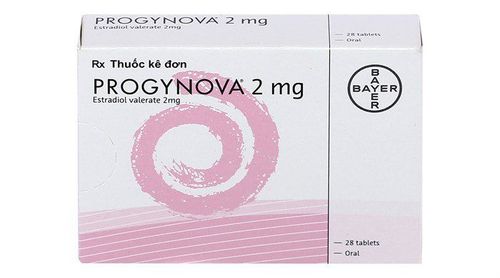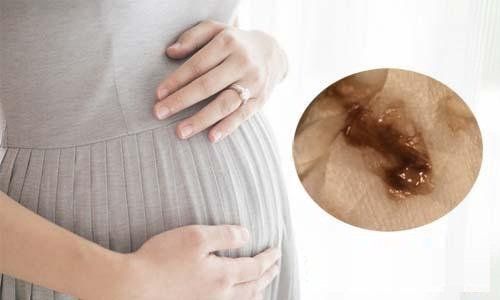If you're wondering whether frequent sneezing affects the fetus, rest assured that this condition does not harm the mother or the baby. However, if sneezing during pregnancy is accompanied by lower abdominal pain lasting for an extended period, it may indicate a health issue that requires attention.
1. Causes of frequent sneezing during pregnancy
Some pregnant women experience more frequent sneezing than usual during pregnancy, and doctors refer to this condition as pregnancy rhinitis. Pregnancy rhinitis is a condition where nasal congestion begins at any point during pregnancy and lasts for up to two weeks after delivery.
Symptoms of pregnancy rhinitis include:
- Runny nose
- Nasal congestion
- Sneezing...
Currently, the exact cause of this condition is unknown, but doctors believe it is related to hormonal changes in the mother’s body.
Additionally, pregnant women may experience frequent sneezing due to the following causes:
- Allergies: If you’ve had allergies in the past, you may still face this condition during pregnancy. However, pregnancy-related allergies do not increase the risk of premature birth or low birth weight.
- Cold or flu: Catching a cold or flu during pregnancy can cause the mother to sneeze frequently.
2. Does frequent sneezing affect the fetus?
Many pregnant women worry whether frequent sneezing affects their baby. If sneezing occurs infrequently and is not accompanied by symptoms like coughing, sore throat, or fever, it is unlikely to affect the fetus. However, if sneezing is frequent, it could lead to some effects, such as:
- Prolonged sneezing during pregnancy may cause contractions, leading to a risk of miscarriage or preterm birth.
- Frequent sneezing can increase intra-abdominal pressure, which could impact the fetus.
Therefore, pregnant women should seek medical attention immediately if sneezing is accompanied by any of the following symptoms:
- Difficulty breathing
- Fever above 38°C
- Dehydration
- Inability to eat or sleep
- Severe lower abdominal pain from sneezing
- Chest pain or tightness
- Wheezing
- Coughing up green or yellow mucus...
3. How to reduce frequent sneezing during pregnancy
Since frequent sneezing may affect the fetus, it is important to find ways to minimize this condition. To reduce frequent sneezing during pregnancy, you can apply the following methods:
- Nasal spray and rinsing: You can use a nasal spray or rinsing device to clean your nose with saline or distilled water.
- Gargle with saltwater daily: Salt has antibacterial properties that help prevent bacteria from causing rhinitis and attacking your throat.
- Drink plenty of water: Drinking enough water will help loosen thick mucus in your nose, making it easier to expel when sneezing. Warm water or water mixed with honey and lemon is better than plain water.
- Ginger tea: Ginger has strong anti-inflammatory properties. When pregnant women experience sneezing or nasal congestion, they can make hot water with a few slices of fresh ginger and a spoon of honey. Drinking ginger tea will help warm the respiratory system and improve sneezing.
- Use a humidifier: This device will add moisture to the air, preventing the respiratory tract from drying out.
- Air purifier: Since pregnant women may be allergic to factors such as mold, dust, or smoke, using an air purifier to clean the living or working space will help improve comfort.
- Avoid irritants: If pregnant women are allergic to substances like pollen, hay, or pet dander, they should avoid inhaling these by wearing masks and glasses when outside, staying away from pets, and not allowing them to enter living spaces. After going outside, change clothes and take a shower.
- Avoid spicy food: Spicy foods like pepper, chili, and mustard may trigger sneezing, which is not good for the health of the mother and baby. Therefore, avoid these foods to feel comfortable and ensure safety.
- Use medication carefully: During pregnancy, anything you consume can pass on to the baby, so be careful with what you take, especially medication. Some pain relievers, antihistamines, and allergy medications are safe during pregnancy. However, consult a specialist before taking any medicine.
- Get a flu shot before pregnancy: It is advisable to get the flu vaccine before pregnancy. If you haven't yet, you can also ask your obstetrician about receiving the flu shot during pregnancy.
- Control asthma: If you have asthma, apart from monitoring your health carefully, discuss with your doctor to find effective support methods during pregnancy.
- Exercise: Regular exercise during pregnancy will help you stay healthy and strengthen your immune system, preventing diseases that affect maternal health.
- Use sanitary pads: If frequent sneezing causes you to leak urine, use sanitary pads to prevent accidents.
- Try fetal position: If sneezing causes severe lower abdominal pain, try holding your belly or lying on your side in the fetal position to reduce discomfort.
- Eat foods rich in vitamin C: During pregnancy, you should consume foods high in vitamin C, such as oranges, grapefruits, guavas, sour cherries, and spinach, to boost your immune system.
It can be said that frequent sneezing during pregnancy is very common and not too dangerous, but pregnant women should not be complacent. Instead, pay attention to every change in your body and consult a doctor immediately if any abnormal signs appear.
Please dial HOTLINE for more information or register for an appointment HERE. Download MyVinmec app to make appointments faster and to manage your bookings easily.













